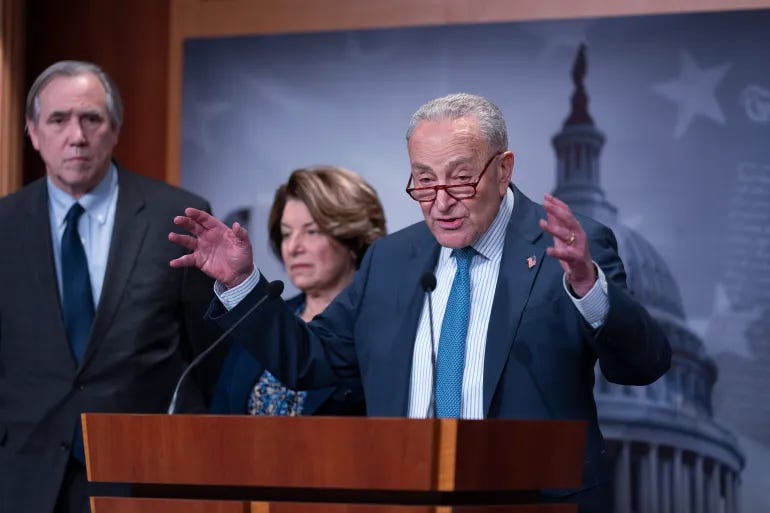US Senate Blocks Bill to Sanction ICC Over Israeli Arrest Warrants
UN Experts Warn US Sanctions Could Undermine International Legal Order
Washington, DC – The United States Senate has blocked a bill aimed at imposing sanctions on the International Criminal Court (ICC) following its issuance of arrest warrants for Israeli Prime Minister Benjamin Netanyahu and former Defense Minister Yoav Gallant over alleged war crimes in Gaza.
The vote, held on Tuesday, resulted in 54 senators in favor and 45 against, falling short of the 60 votes required to move the legislation forward.
Opposition to the bill has been voiced by United Nations experts, European officials, and current and former leaders of the ICC’s management body, warning that such measures could set a troubling precedent for international law and accountability.
Despite rejecting the bill, many Senate Democrats criticized the ICC’s actions, accusing the court of unfairly targeting Israel. The warrants for Netanyahu and Gallant were issued alongside one for Hamas commander Mohammed Deif, accused of orchestrating the October 7, 2023, attack on southern Israel. The ICC has denied any bias in its proceedings.
Divided Reactions Among US Lawmakers
Ahead of the vote, Senate Majority Leader Chuck Schumer, a Democrat, expressed his concerns about the ICC but opposed the bill due to its broad and problematic drafting.
“As much as I oppose the ICC’s bias against Israel and believe the institution needs major reform, this bill is poorly written and could have unintended consequences for U.S. allies and businesses,” Schumer said. He urged Republican lawmakers to revise the bill’s language to make it more effective.
Republican Senator John Thune, supporting the bill, argued that targeting Israel could have implications for the United States as well.
“If the ICC is targeting Israelis today, it could easily turn its focus on Americans next,” Thune stated.
Democratic Senator John Fetterman was the only member of his party to back the legislation, receiving praise from the influential pro-Israel lobbying group, the American Israel Public Affairs Committee (AIPAC), for his stance.
US-ICC Relations and Historical Precedents
The U.S. has had a contentious relationship with the ICC. In 2020, former President Donald Trump imposed sanctions on ICC officials amid concerns over investigations into U.S. military actions abroad. President Joe Biden later reversed these measures, but Trump reinstated them upon returning to office last week. However, these actions have been largely symbolic, as they have not yet led to the reimposition of sanctions.
Concerns Over Legal Precedents and Accountability
Neither the U.S. nor Israel are signatories to the Rome Statute, the treaty establishing the ICC. However, the court argues that it has jurisdiction over alleged war crimes committed in Gaza, as Palestine has been an ICC member since 2015.
The court used similar reasoning when issuing arrest warrants for Russian officials over alleged war crimes in Ukraine—a move that the U.S. previously supported. Critics argue that opposing ICC jurisdiction selectively undermines the principle of universal accountability.
Prosecutors at the ICC contend that Israeli-imposed restrictions on aid to Gaza, including limited access to water and medicine, constitute the use of starvation as a weapon of war. Netanyahu and Gallant also face accusations of crimes against humanity, including murder and persecution, as well as directing attacks on civilians.
The ongoing conflict in Gaza has resulted in 47,354 Palestinian deaths and widespread displacement, with a fragile ceasefire holding since January 19.
International Backlash and Calls for Judicial Independence
Earlier this month, UN experts urged the U.S. Senate to reject the bill after it passed the Republican-controlled House of Representatives.
“It is alarming that a country which claims to champion the rule of law would attempt to obstruct the work of an independent and impartial tribunal,” the experts stated, warning that such actions promote a “culture of impunity.”
Additionally, in an article published by Just Security, current and former presidents of the ICC’s Assembly of States Parties cautioned that U.S. sanctions could hinder more than 20 active investigations worldwide.
“While challenges remain, we stand by the ICC’s mission of justice and its principle that no one should be above the law,” they wrote. “Efforts to undermine the court attack the very foundation of international legal protections for the weak against the powerful.”


